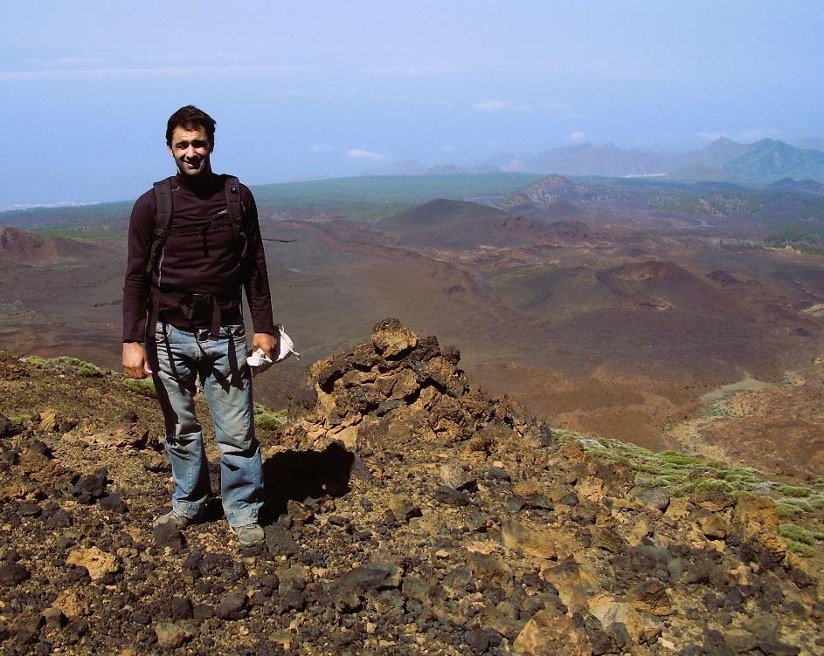Andrea Di Capua – Co Leader
I am Andrea Di Capua, and I earned my PhD at the University of Milan – Bicocca working on the control exerted by volcanism and tectonics on the development of Jurassic and Cenozoic basins from Italy to Argentina. After the PhD, I focused my research on the impact that has on sedimentary environments, widening my fieldwork and collaborations from Hungary to Korea and South America, from ancient to modern environments. I served as young postdoctoral researcher in the Early Scientist Committee of the IAS for three years, and now I have started to lead the Commission of Volcanogenic Sediments of the IAVCEI since last year. As a passionate and adventurous geologist, I am always driven by an insatiable curiosity that leads me to explore diverse geological settings. Whether traversing the majestic Alps or navigating the desolate landscapes of the Patagonian Desert, I am dedicated to uncovering the secrets of ancient volcanism hidden within the enigmatic layers of the sedimentary record.
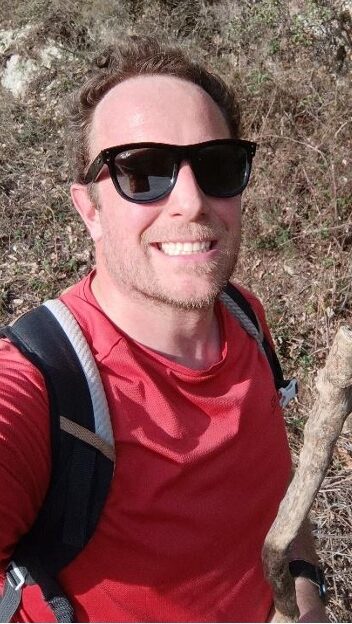
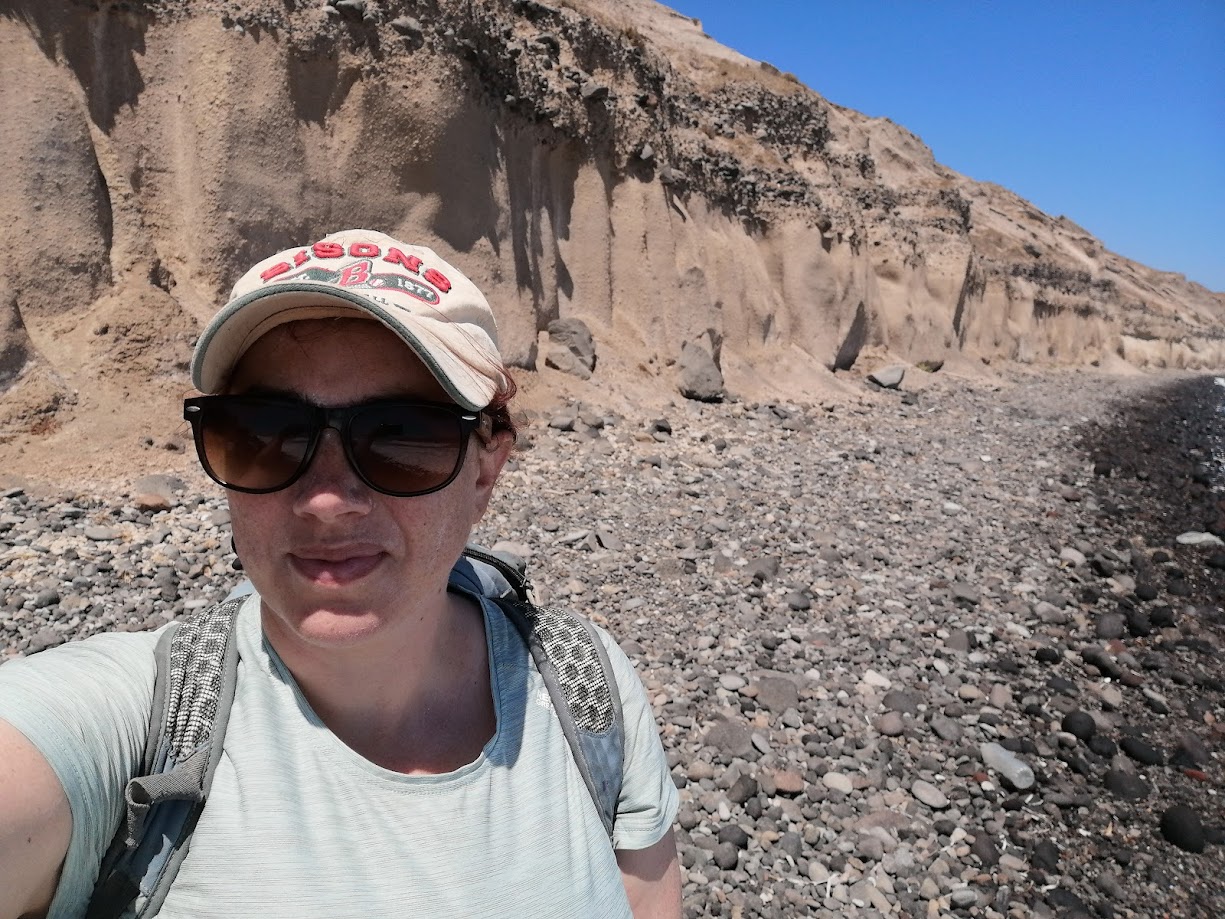
Rebecca Williams – Co-Leader
I’m a volcanologist who takes an interdisciplinary approach to volcano research. My research focusses on understanding hazardous volcanic flows, such as pyroclastic density currents and lahars through field studies and analogue modelling (check out the Catastrophic Flows Research Cluster!). I am particularly interested in deciphering flow and eruption processes from the rock record, and improving our interpretations of volcano-stratigraphy. I am also an advocate and activist for equity, diversity and inclusivity in volcanology, Earth Science, higher education and science more broadly. I’d love to see CVS become an inclusive space and vibrant forum to bring together folks from all career stages across the globe who have an interest in volcanogenic sediments, bringing together both volcanologists and sedimentologists.
Anke Zernack – Secretary
Anke is a senior research officer at Massey University, working on various aspects of physical volcanology, volcanic stratigraphy, volcaniclastic sedimentology and geochemistry, including mass-flow processes and hazards at andesite stratovolcanoes. She is also interested in primary pyroclastic flow and tephra deposits produced during large explosive eruptions and the resulting landscape response, with a focus on Taupo Volcano, New Zealand and Laacher See Volcano, Germany. She currently leads several multidisciplinary research projects centred around the modern and prehistoric use of pumice resources, combining volcanology with archaeology, material science, engineering, economics, and indigenous perspectives, including Māori knowledge, practices and innovation. As secretary of the Commission of Volcanogenic Sediments, Anke is responsible for maintaining administrative records and communicating information about commission activities.
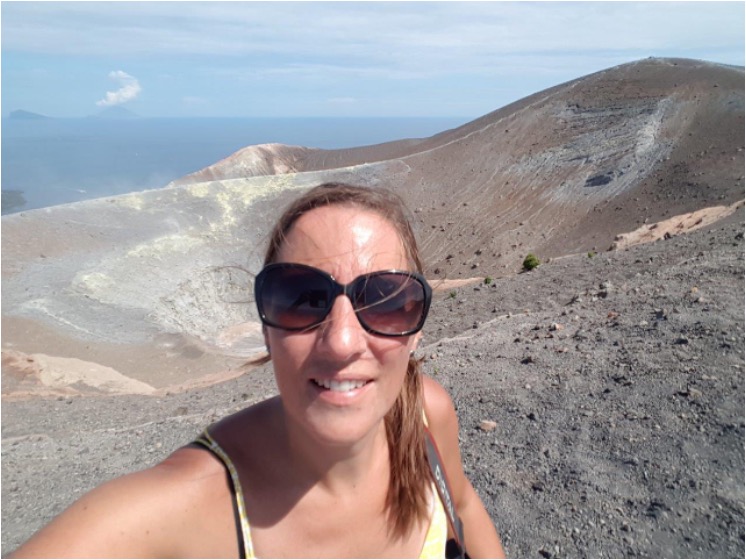
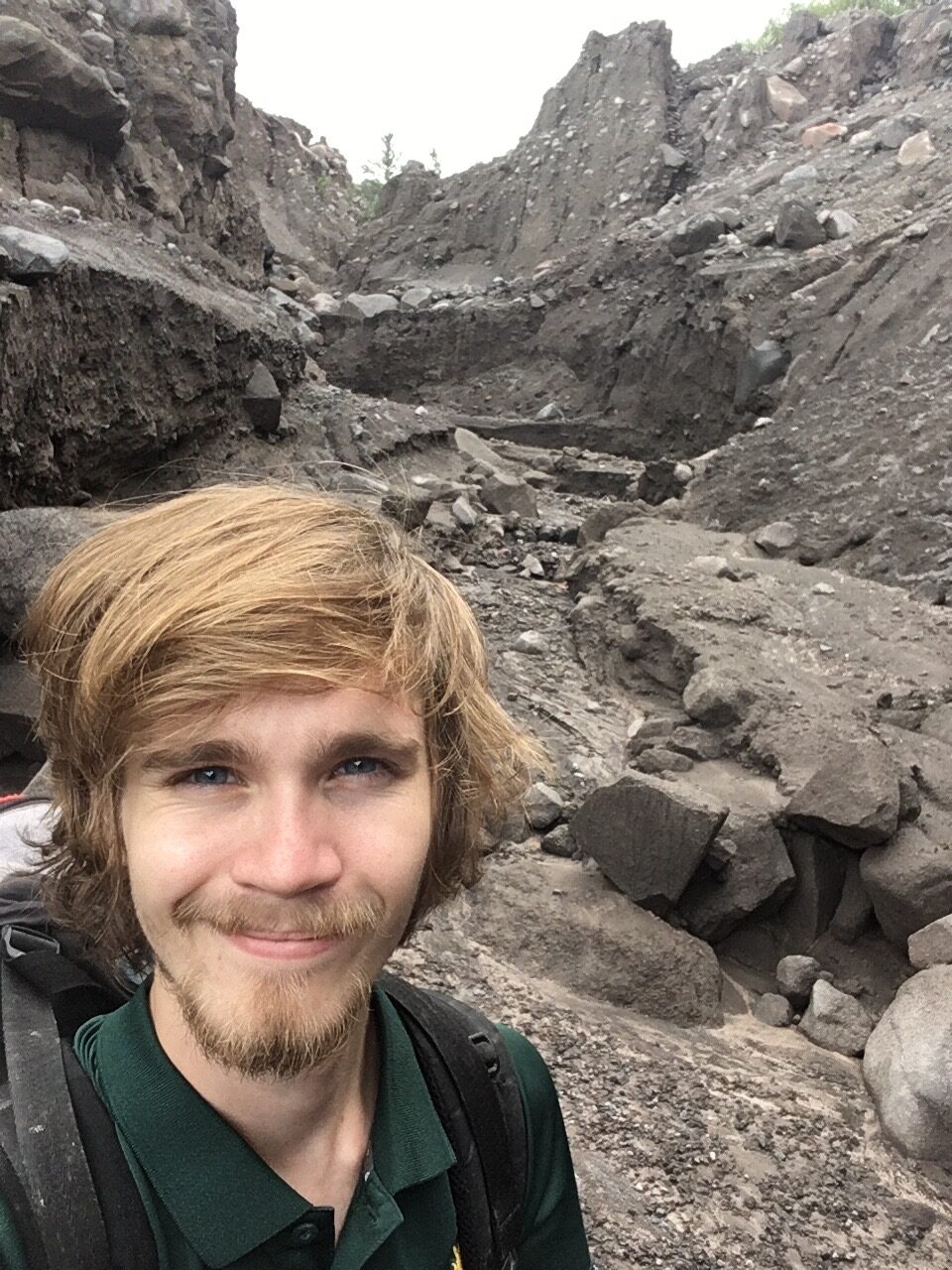
Ed McGowan – Webmaster
Ed is a PhD researcher at the University of Leicester, UK. His project focuses on the combination of field observations and geochemical analysis to establish correlations between caldera-forming pyroclastic deposits in the English Lake District. Additionally, Ed studies the pedagogical potential of popular video games within geoscience, particularly those with explorable volcanic landscapes.
The thing Ed finds most exciting about his job is piecing together all the puzzle pieces of an ancient volcanic landscape to build up events that happens hundreds of millions of years ago. Additionally, being able to draw comparisons between other volcanoes across the world and in virtual landscapes. Ed is also on the UK’s Volcanic & Magmatic Study Group committee as webmaster, and several UoL committees, using his positions to improve inclusivity in research environments.
Manuel López – ECR Representative
Manuel López is currently an Assistant Researcher of CONICET (Consejo Nacional de Investigaciones Científicas y Técnicas) at the CIG (Centro de Investigaciones Geológicas), La Plata, Argentina. He also has an assistant teacher position at the UNLP (Universidad Nacional de La Plata).
Manuel is interested in sedimentary responses caused by volcanic processes and their preservation in basin infills. He encourages a holistic approach that considers the volcano-sedimentary understanding of environmental signals resulting from the conjunction of volcanic, tectonic, and climatic controls.
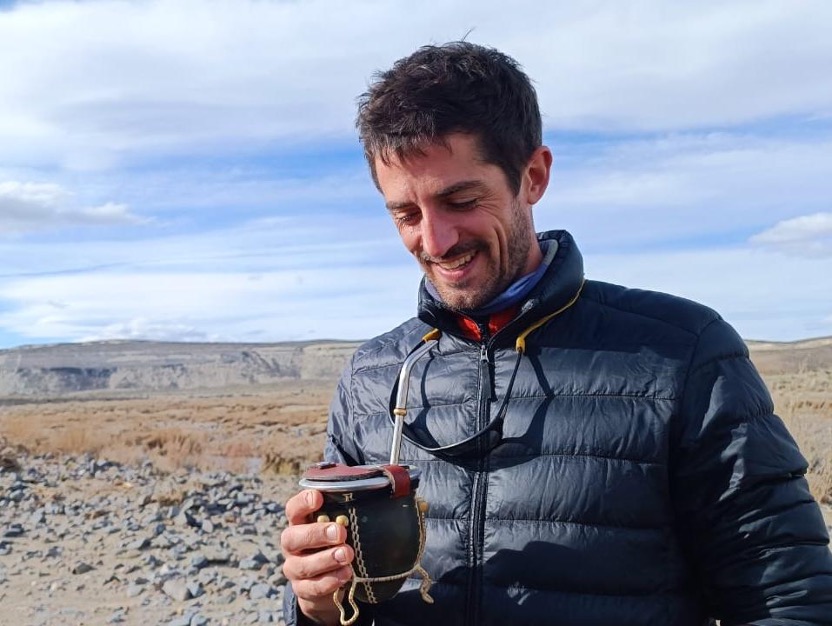
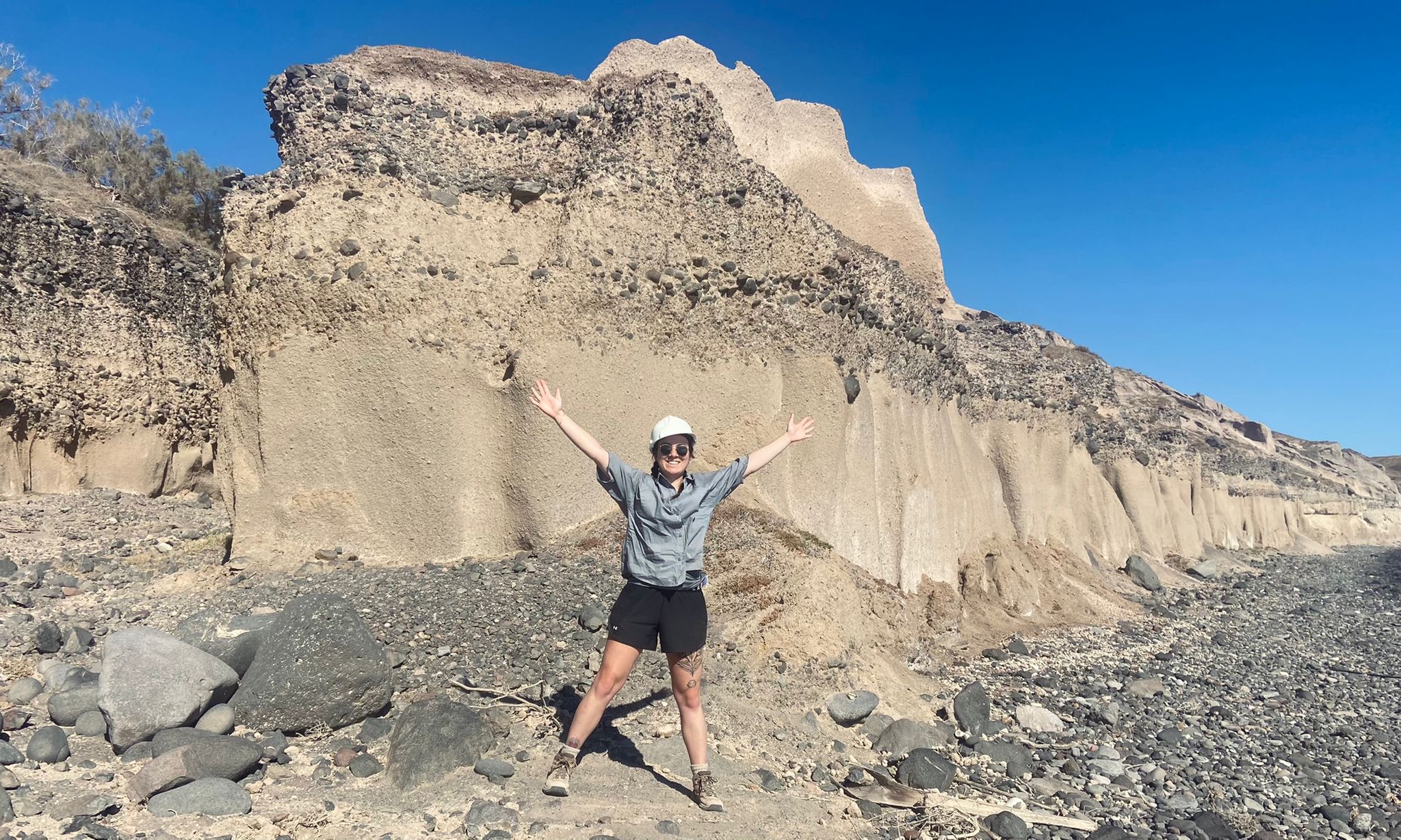
Nemi Walding – Social Media
I am Nemi Walding and I am currently a final year PhD student at the university of Hull. My research explores the static and dynamic behaviour of pyroclastic material and it’s implications for architecture. I specifically look at how variations in moisture content into pyroclastic material can lead to changes in fluidisation, gas escape and strength. This has implications for the erosion and preservation of material and can lead to variations in deposit architecture and uncertainty in understanding PDC deposit sequences. The most exciting part of my job working with a fantastic team, having the freedom to do unique and exciting research and of course, the travel!
I have joined the Commission of Volcanogenic Sediments as a social media officer. I’m always looking for new ideas to get people involved and love to engage with others through sharing research papers, photos, positions and the activities of the commission on our many different social media platforms!
Leandro D’Elia – Member of the board
Leandro D’Elia – Current position permanent Researcher of CONICET (Consejo Nacional de Investigaciones Científicas y Técnicas of Argentina) at the CIG (Centro de Investigaciones Geológicas), La Plata, Argentina – Professor in the Facultad de Ciencias Naturales y Museo (FCNyM) de la Universidad de la Plata (UNLP), Argentina.
Leandro is interested in the interrelationships between volcanism, tectonics, and climate in sedimentary environments. This includes how tectonic, climate, and sedimentary processes impact volcanic landforms, as well as how volcanism affects the erosional engine and geomorphological threshold of environments, leading to modifications in short- or long-term sedimentary systems in extensional and foreland basins.
The most exciting part of my job is visiting incredible places, where I get to meet and temporarily live with local residents, experiencing their habits and culture.
ResearchGate
Official Website
